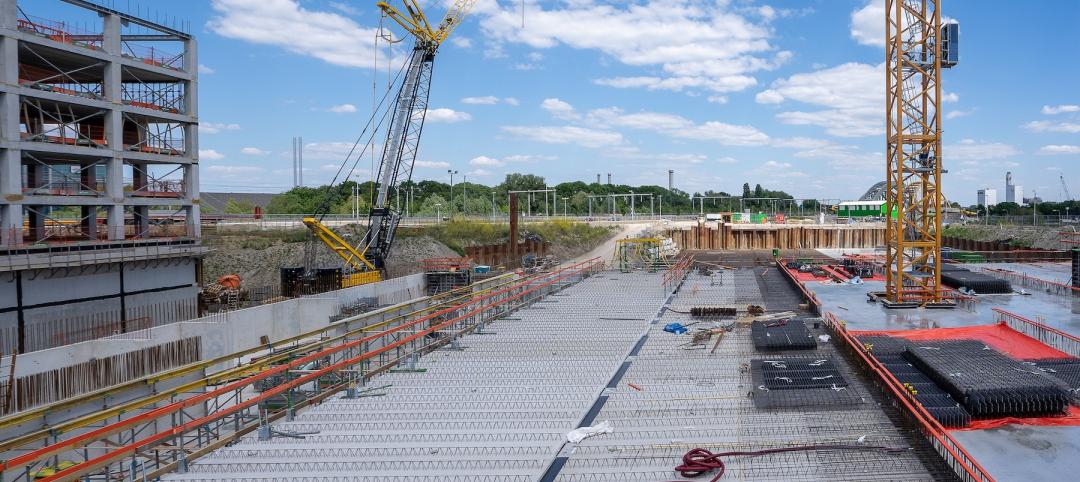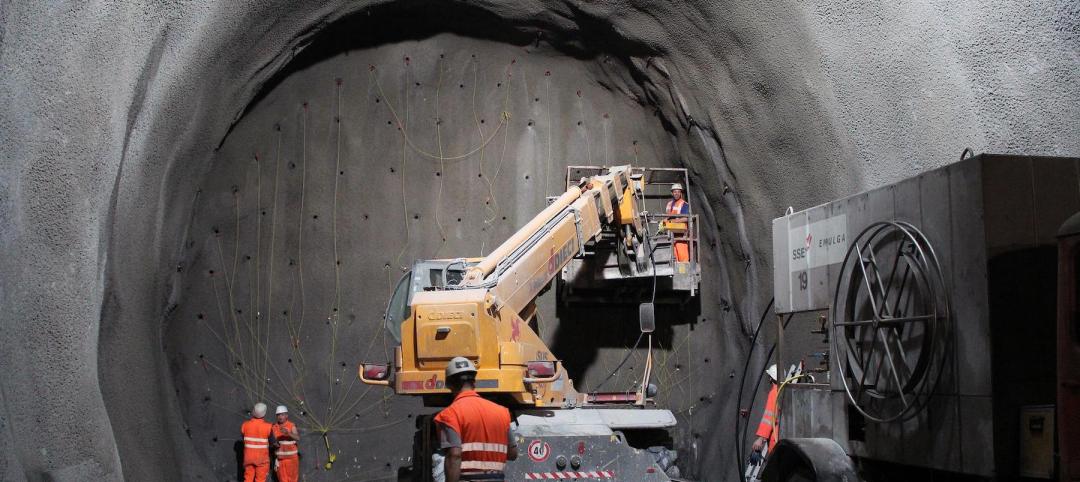Only 30% of the nation’s metro areas added construction jobs in the past year, according to an analysis of new government data that the Associated General Contractors of America released today. Association officials said construction employment in most parts of the country was being impacted by pandemic as businesses and local governments curtail planned construction projects.
“The pandemic has devastated the finances for businesses, institutions, and state and local governments, leading to widespread postponements and cancellations of construction projects,” said Ken Simonson, the association’s chief economist. “As contractors use up the funds from Paycheck Protection Program loans, even more job losses are inevitable unless the federal government provides an immediate economic boost.”
Construction employment fell in 209, or 58%, of 358 metro areas between October 2019 and October 2020. Construction employment was stagnant in 40 other metro areas, meanwhile, and only 109 metro areas—30%—added construction jobs during the past year.
Houston-The Woodlands-Sugar Land, Texas lost the most construction jobs over those 12 months (-19,800 jobs, -8%), followed by New York City (-17,300 jobs, -11%); Montgomery-Bucks-Chester Counties, Pa. (-12,100 jobs, -21%); and Minneapolis-St. Paul-Bloomington, Minn. (-10,400 jobs, -11%). Brockton-Bridgewater-Easton, Mass. had the largest percentage decline (-43%, -2,500 jobs), followed by Bloomsburg-Berwick, Pa. (-36%, -500 jobs); Altoona, Pa. (-32%, -1,000 jobs); Johnstown, Pa. (-30%, -800 jobs); and East Stroudsburg, Pa. (-30%, -600 jobs).
Dallas-Plano-Irving, Texas added the most construction jobs over the year (7,100 jobs, 5%), followed by Seattle-Bellevue-Everett, Wash. (4,700 jobs, 4%); Kansas City, Mo. (3,700 jobs, 12%); and Boise, Idaho (3,500 jobs, 13%). Walla Walla, Wash. had the highest percentage increase (25%, 300 jobs), followed by Lewiston, Idaho-Wash. (18%, 300 jobs); Oshkosh-Neenah, Wisc. (16%, 900 jobs); Fond du Lac, Wisc. (15%, 500 jobs); and Springfield, Mo. (15%, 1,400 jobs).
Association officials said the best way to curtail future construction job losses was for Congress to pass new federal coronavirus relief measures. These measures should include making new infrastructure investments, eliminating plans to tax Paycheck Protection Program loans and enacting liability reform to protect honest businesses from baseless coronavirus lawsuits.
“Construction employment is likely to continue falling in many parts of the country unless Congress quickly passes new coronavirus relief measures,” said Stephen E. Sandherr, the association’s chief executive officer. “Boosting infrastructure projects, preserving the benefits of the Paycheck Protection Program and protecting businesses from predatory attorneys will help stabilize the economy and demand for construction.”
View the metro employment 12-month data, rankings, top 10, new highs and lows, map.
Related Stories
Codes and Standards | Oct 26, 2022
‘Landmark study’ offers key recommendations for design-build delivery
The ACEC Research Institute and the University of Colorado Boulder released what the White House called a “landmark study” on the design-build delivery method.
Building Team | Oct 26, 2022
The U.S. hotel construction pipeline shows positive growth year-over-year at Q3 2022 close
According to the third quarter Construction Pipeline Trend Report for the United States from Lodging Econometrics (LE), the U.S. construction pipeline stands at 5,317 projects/629,489 rooms, up 10% by projects and 6% rooms Year-Over-Year (YOY).
Designers | Oct 19, 2022
Architecture Billings Index moderates but remains healthy
For the twentieth consecutive month architecture firms reported increasing demand for design services in September, according to a new report today from The American Institute of Architects (AIA).
Market Data | Oct 17, 2022
Calling all AEC professionals! BD+C editors need your expertise for our 2023 market forecast survey
The BD+C editorial team needs your help with an important research project. We are conducting research to understand the current state of the U.S. design and construction industry.
Market Data | Oct 14, 2022
ABC’s Construction Backlog Indicator Jumps in September; Contractor Confidence Remains Steady
Associated Builders and Contractors reports today that its Construction Backlog Indicator increased to 9.0 months in September, according to an ABC member survey conducted Sept. 20 to Oct. 5.
Market Data | Oct 12, 2022
ABC: Construction Input Prices Inched Down in September; Up 41% Since February 2020
Construction input prices dipped 0.1% in September compared to the previous month, according to an Associated Builders and Contractors analysis of U.S. Bureau of Labor Statistics’ Producer Price Index data released today.
Laboratories | Oct 5, 2022
Bigger is better for a maturing life sciences sector
CRB's latest report predicts more diversification and vertical integration in research and production.
Market Data | Aug 25, 2022
‘Disruptions’ will moderate construction spending through next year
JLL’s latest outlook predicts continued pricing volatility due to shortages in materials and labor
Market Data | Aug 2, 2022
Nonresidential construction spending falls 0.5% in June, says ABC
National nonresidential construction spending was down by 0.5% in June, according to an Associated Builders and Contractors analysis of data published today by the U.S. Census Bureau.
Market Data | Jul 28, 2022
The latest Beck Group report sees earlier project collaboration as one way out of the inflation/supply chain malaise
In the first six months of 2022, quarter-to-quarter inflation for construction materials showed signs of easing, but only slightly.

















